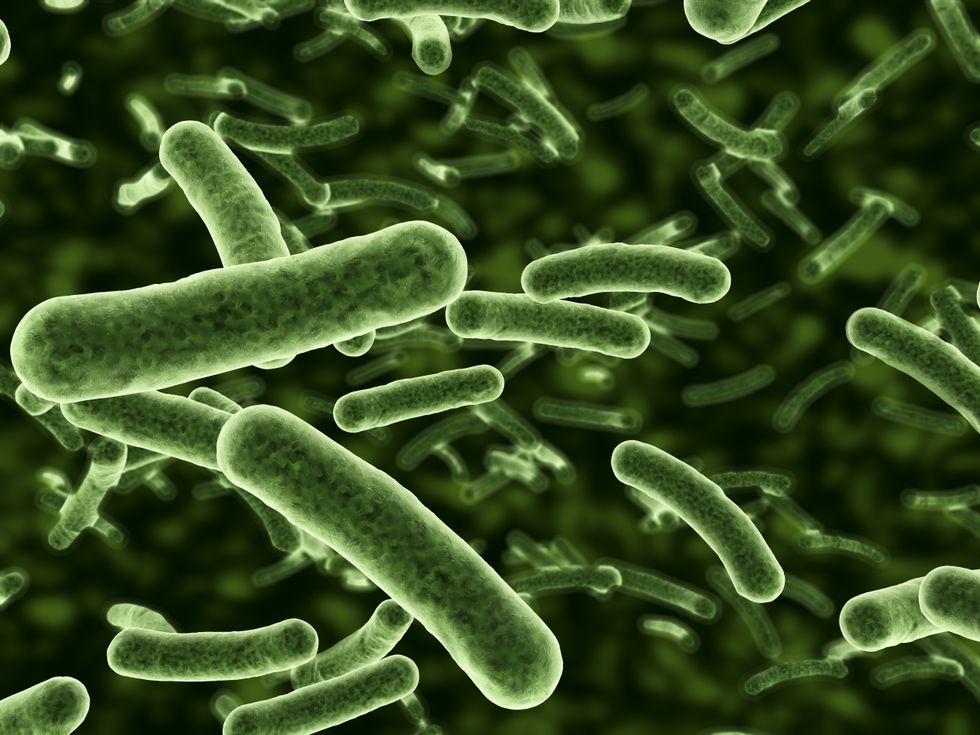Mirror bacteria: Scientists issue stark warning as lab-made microbes 'endanger all life on earth'

Synthetic organisms cannot evolve naturally but would need to be artificially created in laboratory conditions
Don't Miss
Most Read
Scientists have issued a stark warning about the potential dangers of "mirror bacteria" - hypothetical synthetic life forms that could pose significant risks to all life on Earth if created in laboratories.
An international group of leading researchers has highlighted concerns about these artificial organisms, which would be engineered with reversed molecular structures unlike anything found in nature.
These mirror-image life forms could potentially spread between ecosystems unchecked, threatening humans, animals and plants alike.
The warning comes as synthetic biology advances raise questions about future capabilities to create such organisms, despite being decades away from reality.

A stock image of bacteria
|GETTY
At the heart of this scientific concern lies a fundamental property of life's molecular building blocks called chirality, or structural asymmetry.
These molecules, including DNA, proteins and carbohydrates, exist in specific "handed" forms - similar to how human hands have left and right versions.
In nature, DNA and RNA are composed of right-handed molecules, while proteins use left-handed amino acids.
Mirror bacteria would be engineered with these molecular structures completely reversed, making them fundamentally different from all known life forms.
These synthetic organisms cannot evolve naturally but would need to be artificially created in laboratory conditions.
The unique structure of mirror bacteria would make them virtually undetectable to natural predators, experts warn.
"A synthesized mirrored microbe wouldn't just be essentially invisible to animals and likely plants but also other microbes, including viruses that could attack and kill it," explains Vaughn Cooper, a microbiologist from the University of Pittsburgh.
Patrick Cai from the University of Manchester emphasises the multiple threats these organisms could pose: "These bacteria could potentially evade immune defences, resist natural predators and disrupt ecosystems."
"This form of life has never existed or evolved. Consequently, all biological interactions would be different or likely wouldn't work," adds Dr Cooper.
While the technology to create mirror bacteria remains theoretical, scientists emphasise that such capabilities could be decades away.
The development would require significant breakthroughs in synthetic cell research before becoming possible.
However, researchers stress that early discussions about safety are crucial despite the distant timeline.
"While mirror bacteria are still a theoretical concept and something that we likely won't see for a few decades, we have an opportunity here to consider and pre-empt risks before they arise," says Dr Cai.
Scientists note that some related technologies, such as mirror-image DNA and proteins, could advance medicine without directly leading to mirror bacteria.
The potential risks of mirror bacteria could be severe and far-reaching, scientists warn in their report.
Experts caution that these synthetic organisms could become invasive species across multiple ecosystems.
The report, authored by specialists in immunology, plant pathology, ecology, evolutionary biology, biosecurity, and planetary sciences, warns of possible "pervasive lethal infections in a substantial fraction of plant and animal species, including humans."
This has prompted calls for broad discussions involving policymakers, scientists, industry, civil society, and the public.
The goal is to establish safety protocols and guidelines before the technology becomes feasible.
The scientists emphasise the importance of charting a safe path forward while protecting people, animals, and the environment.
Despite the potential risks, scientists are not calling for restrictions on mirror bacteria research.
"We do not recommend restricting any of these areas of research. I hope this is the starter of many discussions engaging broader communities and stakeholders soon," says Dr Cai.
The experts emphasise that early dialogue is crucial to addressing potential threats while allowing beneficial research to continue.
The focus remains on guiding research responsibly whilst maintaining safety standards for people and the environment.
Related technologies like mirror-image DNA and proteins could offer medical advances, highlighting the importance of balanced scientific progress.
The scientists stress that proactive safety discussions will help ensure responsible development of these revolutionary technologies.











